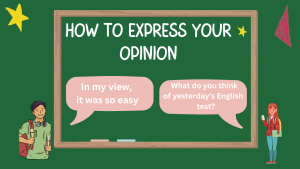
What does the word effect mean in grammar?
The term ‘’effect‘’ refers to one thing that was caused by another thing (cause); i.e., a change that is the result of an action or cause. For example: Lack of rain has an effect on water levels in rivers. The common way of expressing effect, is to use expressions of effect to link cause and effect clauses.
It is useful to remember that there are some expressions that are followed by a clause (subject+verb), while others are followed by a noun. The two tables below illustrate these two uses.
Expressions of effect that are followed by a clause
| Expression | Example |
| As an effect | The winds were strong. As an effect, the flight was canceled. |
| As a result | The winds were strong. As a result, the flight was canceled. |
| As a consequence | The winds were strong. As a consequence, the flight was canceled. |
| Consequently | The winds were strong. Consequently, the flight was canceled. |
| Hence | The winds were strong. Hence, the flight was canceled. |
| Therefore | The winds were strong. Therefore, the flight was canceled. |
| Thus | The winds were strong. Thus, the flight was canceled. |
| So | The winds were strong. So the flight was canceled. |
| Because of this | The winds were strong. Because of this, the flight was canceled. |
Expressing effect using expression plus noun
| Expression | Example |
| The effect of | – The effect of the trong winds was the cancellation of the flight . – The cancellation of the flight was the effect of the strong winds. |
| The result of | – The result of the trong winds was the cancellation of the flight. – The cancellation of the flight was the result of the trong winds. |
| The consequence of | – The consequence of the trong winds was the cancellation of the flight. – The cancellation of the flight was the consequence of the trong winds was . |
Exercise about expressing effect
Rewrite the following sentences using the expressions between brackets
- Tim forgot his maths book. He was unable to complete his homework. (so)
- Keegan skipped lunch. He was hungry. (as a consequence)
- Erin’s car had a flat tire. She called a tow truck . (therefore)
- Gina couldn’t find the cookies. Papa hid them in the cupboard. (hence)
- Kelly studied well. She got high grades on the last tests. (consequently)
- Our apartment is on the 11 the floor. We have a great view of the city. (thus)
- I helped my mother. She was able to finish her work quickly. (because of this)
- It was a very windy day. We were able to fly our kite. (as an effect)
- He wasn’t feeling well. He decided to stay home and not go to school. (the effect of)
- We have to wear warm clothes. It’s winter now. (so)
- I’ve finally finished painting the house. Now I can go fishing. (the effect of)
- I can get a job as a bilingual secretary. I know English now. (Therefore)
- The civil war has ended. A new government is being formed. (thus)
- The guys don’t know any Chinese. I have to speak English with them. (so)
- It was raining. I took my umbrella with me. (as an effect






